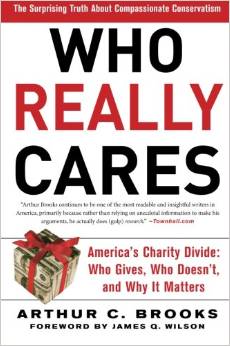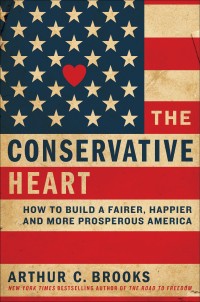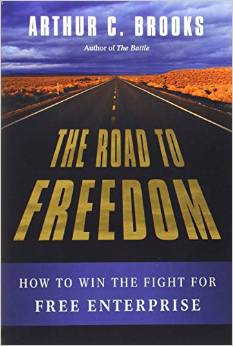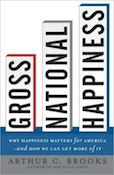Who Really Cares: America’s Charity Divide – Who Gives, Who Doesn’t, and Why It Matters
When President Bush coined the term “compassionate conservatism,” many conservatives were understandably miffed. It seemed to concede to liberals that traditional conservatives are indeed a greedy, selfish bunch – unlike liberals, with their “commitment” to the poor and disadvantaged. Now comes an amazing new book that buries that old canard forever. In “Who Really Cares: America’s Charity Divide – Who Gives, Who Doesn’t, and Why It Matters,” Arthur C. Brooks uses hard data to prove that, when it comes to charitable giving, conservatives – especially religious conservatives – are far more generous than liberals, who seem to believe that “compassion” begins and ends with voting for government handouts.
When Brooks started his research, he fully expected to find that political liberals would be the most privately charitable people. When early findings led to the opposite conclusion, he assumed he had made an error. He re-ran analyses and got new data, but in the end he had no option but to change his views. It seems that many of those who say that charity is the responsibility of private individuals instead of governments truly practice what they preach. Brooks also identifies the forces behind American charity: strong families, church attendance, earning one’s own income (as opposed to receiving welfare), and the belief that individuals-not government-offer the best solution to social ills.
Get the data and documentation behind these and many other revelations in “Who Really Cares”:
- Conservative households in America donate 30% more money to charity each year than liberal households, even in spite of lower average incomes
- Conservatives are also more generous in other ways, such as blood donations, and volunteer work. In fact, if liberals gave blood like conservatives do, the blood supply in the U.S. would jump by about 45%
- People who mistrust big government give more than those who rely on the government to take care of the poor. This includes giving and volunteering even to traditionally “progressive causes” such as the arts and the environment
- Conservative “red” states give away far more of their incomes than liberal “blue” states do
- Religious people give away four times more money each year than secularists. This is not just because of giving to churches – religious people are 10 percent more likely than secularists to give money to explicitly nonreligious charities
- Religious people are far more generous than secularists with their time. For instance, a religious person is 57% more likely than a secularist to help a homeless person
- Religious people are also more generous in informal ways, such as giving money to family members, and behaving honestly
- A working poor family without welfare support gives, on average, more than three times as much money to charity each year as a family with the same total income that receives welfare support. In other words, poverty does not discourage charity in America — but welfare does
- People raised in intact and religious families are more charitable than those who are not. For instance, married parents are 9 percentage points more likely to give money than divorced parents, and 29 points more likely than never-married parents
- Charitable giving spurs the economy: at the national level, a $1 increase in giving per person stimulates a $19 increase in GDP per capita
- Americans give far more money and are far more likely to volunteer their time than citizens of any European country. For example, the average American family gives three and a half times as much as a French family, seven times as much as a German family, and 14 times as much as an Italian family
- Charitable giving and volunteering improve physical health and happiness, and lead to better citizenship — whereheas many government policies that discourage private charitable behavior have negative effects
In short, “Who Really Cares” demonstrates conclusively that conservatives really are far more compassionate than their liberals – and that charity matters, not just to the givers and to the recipients, but to the nation as a whole.
Shattering Stereotypes
“This remarkable book documents the dramatic gap between those who talk about caring and those who actually care. The shattering of stereotypes will be as upsetting to some Americans as it will be encouraging to others.”—The Rev. Richard John Neuhaus, editor-in-chief of First Things
” ‘Who Really Cares’ is not just about how we contribute time and money; it is also about how our culture may affect our politics and our economy. It is the best study of charity that I have read, and I think you will think that as well.” —From the foreword by James Q. Wilson
Tags: Arthur C. Brooks, Who Really Cares: America's Charity Divide
- The Author

Arthur C. Brooks
** Exclusive CBC Author Interview with Arthur Brooks ** Video Endorsement from Arthur Brooks below! Arthur C. Brooks is president of […] More about Arthur C. Brooks.
- Books by the Author

















